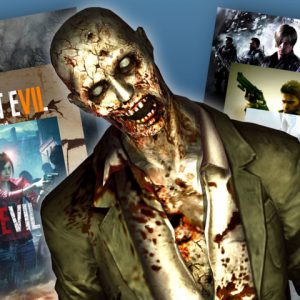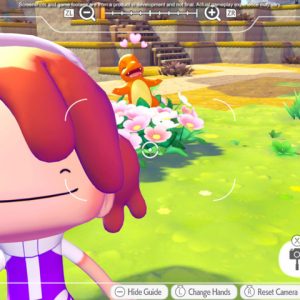
After a busy year of video games, the slower pace of January is a great time for us to go back and play some of the cool, smaller titles that we might have passed over while trying to keep up with the big blockbusters of the end of the year. In this article, we take a look at the wonderfully charming Frog Detective 2: The Case of the Invisible Wizard, as well as two fiendish puzzle games for those who like a little more (well, a lot more) challenge: Superliminal and Kine.
In retrospect, 2019 was actually pretty rich for the indie scene, and it’s nice to see some of the games we’d previously mentioned in this column making it to a few best-of lists around the internet–if you missed them, you can go back and check out our takes on Eliza, A Short Hike, and Anodyne 2, as well as Mutazione, Wilmot’s Warehouse, and Fit For A King. Don’t sleep on these super cool games!
Frog Detective 2: The Case of the Invisible Wizard
I feel like we could do with a bit more wholesomeness right about now. The second and, if the unexpected post-credits scene is accurate, evidently not the last in the Frog Detective Investigations series offers a welcome respite from the bleak realities of raging bushfires, corporate greed, and bellicose presidents. It’s a world without crime, after all, despite the confusingly-named Frog Detective Crime Solving Agency.
It’s also a world where the kind folk of Warlock Woods come together to throw a welcome parade to their devastatingly shy new neighbour, and reluctantly call in the services of the titular frog detective when they discover the parade preparations have been trashed. Everyone in Warlock Woods is just so damn nice… well, except for Victor perhaps, but he’s only a little grumpy because he’s so hungry. Still, they’re a friendly lot, a close-knit community of talking animals who have refreshingly progressive views on how to receive a complete stranger into their small town.
Actual detective work is light on the ground. You cannot leave your office to travel to the town without first collecting your trusty magnifying glass, but it’s a red herring really, and utterly useless for the task at hand. Instead, you’re best served by chatting with the townsfolk and making gentle enquiries as to their whereabouts on the night in question. There are some trifling puzzles to overcome to push the story forward, but for the most part, you’re here to enjoy the witty dialogue and revel in the whimsical nature of it all.
Be warned: this is a short game, as the Steam page makes very clear. In a sense, it’s almost a perfectly formed one, and best played in one sitting over the course of about an hour. The writing is sharp, the banter between the animals silly yet crammed full of genuinely smart and laugh out loud exchanges. It’s goofy without slipping into wackiness, and facetious without sliding into sarcasm. Hitting on a tone that’s just the right mix of playful and good-natured, Frog Detective 2 delivers a delightfully mischievous mystery to solve.
It’s like: LA Noire spent a Night in the Woods in the Animal Crossing village
Get Frog Detective 2: The Case of the Invisible Wizard on Steam and Itch.io
Kine
A musical trio featuring drums, accordion, and trombone may not suggest ear-catching potential, but when the three are asked to jam in this pop-jazz puzzler it’s hard to resist toe-tapping along to the beat.
Kine presents a series of discrete spatial puzzles that sprawl out across a kind of big band infused cityscape. Aesthetically it screams–well, rather shuffles and struts–early 20th century New York, all bright lights and big beats and Broadway. Each puzzle takes place on a small grid and you must maneuver your musical instrument, whether it’s drum, trombone, or accordion, across the grid to a goal square.
The catch is that the block-shaped instruments can only be moved by rolling them on their side, a task that’s made trickier through the devious gaps in the floor and pillars that block the obvious path. Each instrument has different dimensions and movement mechanics to consider too–the accordion, for example, can extend either vertically or horizontally, changing its shape on the fly and thus the squares of the grid its now eligible to roll onto. The L-shaped trombone is even more complex. It can be reconfigured along two axes and is prone to find its movement impeded by the increasing number of obstructions around the grid.
The difficulty ramps up gently as you’re introduced to the three instruments in turn. Later levels become fiendishly fraught when the trio finally comes together and you’re required to switch between them to solve the puzzle. Moving the drums just so to create a new platform for the accordion to land on which in turn will open up a route for the trombone, and so on. These later levels encourage you to visualise the shape of the board several moves in advance, which is exhausting in the moment but thrilling to solve.
I had to take breaks after every few levels when my head was too cluttered with geometry. The compulsive, looping jazz soundtrack kept me returning, though, driving me forward onto the next puzzle grid of musical gymnastics with its percussive momentum.
It’s like: Stephen’s Sausage Roll by way of Cadence of Hyrule and Jazzpunk
Get Kine on the Epic Game Store and digitally on PlayStation 4, Xbox One, and Nintendo Switch.
Superliminal
Superliminal is a puzzle game about how we see the world, and how much your perspective on the world matters. And it really wants you to understand that its core mechanic is also a metaphor for the infinite ways we collectively see the world. We’ve all got our own perspective, but wouldn’t it be good if we could see things from another vantage point? Maybe a change of perspective might, you know, change some perspectives.
That core mechanic initially sees you able to pick up certain objects and alter their size depending on how they’re set back down into the environment. Walk real close to a tiny ball so it appears large, then pick it up and suddenly it’ll be enormous when you look up and drop it in the middle of a room. Conversely, grab something large from a distance and it’ll shrink in your hands, letting you set down a miniature version. It’s a startling effect the first time you see it, and that sense of wonder–that feeling you’re performing some kind of illicit dark magic every time you pick something up–only dissipates slightly over the course of the game.
Other mechanics are added to your puzzle-solving repertoire, letting you utilise negative space to your advantage or allowing the seemingly infinite replication of interactable objects, among others. Some of these additions are more successful than others, and while they do extend the palette of puzzle types, it’s that core “is it big or is it small?” conceit that conjures the most satisfying conundrums to crack, especially the second-to-last series of challenges that take the core idea and twist it back in on itself in an unexpectedly giddying manner.
The denouement to this Portal-esque series of puzzle chambers is a little anticlimactic in terms of its difficulty, though it never fails to throw up fascinating new environments that you’ll want to thoroughly explore. And it’s here where the “how about a new perspective?” narrative metaphor becomes laboured to a point verging on parody, though the earnestness of its all-too-obvious message did make me feel bad for rolling my eyes.
Don’t let the clumsy theme deter you, Superliminal remains an inventive and eye-opening puzzle game throughout.
It’s like: Portal enrolled at the Stanley Parable and brought a bag of Photoshop tricks.
Get Superliminal on the Epic Game Store.





















-768x300.jpg)


